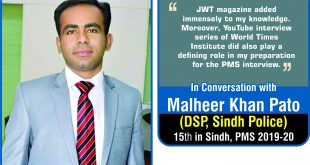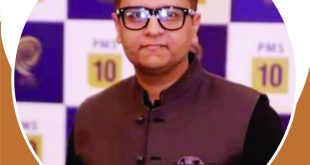 One of the finest orthopaedic surgeons in Pakistan Dr Kamran Butt graduated in medicine from Quaid-e-Azam Medical College Bahawalpur. Besides winning a gold medal, he also secured top three positions in different university level exams. After completing his internship in medicine and surgery, Dr Butt went to Ireland from where he completed specialization in Sports Medicine from Royal College of Surgeons in Ireland in 1998. Later, in 2001, he did his FRCS and was selected for Irish surgical residency training programme in orthopaedics. Then he qualified the EBOT exam to become a Fellow of the European Board of Orthopaedics and Traumatology. Dr Butt did his Children Fellowship from Manchester and Hip Fellowship from London. He has the distinction of being Pakistan’s first fellowship trained children Orthopaedic Surgeon from UK. He has also served as a Consultant Orthopaedic Surgeon in Birmingham before his return to Pakistan.
One of the finest orthopaedic surgeons in Pakistan Dr Kamran Butt graduated in medicine from Quaid-e-Azam Medical College Bahawalpur. Besides winning a gold medal, he also secured top three positions in different university level exams. After completing his internship in medicine and surgery, Dr Butt went to Ireland from where he completed specialization in Sports Medicine from Royal College of Surgeons in Ireland in 1998. Later, in 2001, he did his FRCS and was selected for Irish surgical residency training programme in orthopaedics. Then he qualified the EBOT exam to become a Fellow of the European Board of Orthopaedics and Traumatology. Dr Butt did his Children Fellowship from Manchester and Hip Fellowship from London. He has the distinction of being Pakistan’s first fellowship trained children Orthopaedic Surgeon from UK. He has also served as a Consultant Orthopaedic Surgeon in Birmingham before his return to Pakistan.
Jahangir’s World Times (JWT): What was the passion behind your coming back to Pakistan after abandoning a life of comfort and luxury in the United Kingdom?
Dr Kamran Butt (DKB): Of course, life in the United Kingdom is far more comfortable than that in Pakistan. However, I believe that the foremost duty of a doctor is to serve the sick, no matter where he or she is. This is a noble profession, not a mere customer service. As you know, in UK, there are state-of-the-art hospitals equipped with countless facilities where patients are provided best treatment and maximum possible care. On the contrary in Pakistan, unfortunately, people have to struggle really hard to get proper treatment because our health sector has long been a victim of official neglect and apathy. So, the miseries of my compatriots spurred me to come back to my own homeland. Moreover, serving my own people has always been a passion to me.
JWT: As you know cousin marriages are still rampant in Pakistan, what are the common consequences of such marriages and what can be their orthopaedic implications?
DKB: Actually genes get neutralized due to cousin marriages. This can cause serious problems in the children born out of such marriage; for instance, they can fall prey to thalassaemia and other blood-related diseases. Moreover, cousin marriage can cause congenial disease like muscular dystrophy, dislocation of hip joint, scoliosis or curvature of the spine, and heart and lungs abnormalities. It is because of cousin marriages that these diseases are common among our people.
JWT: Despite all the implications you have mentioned, cousin marriages are still like a deep-rooted custom in our society. What measures should we adopt in order to minimize their adverse impacts?
DKB: You have rightly pointed out the issue. I think it’s a critical issue that still goes unaddressed in our society. By the grace of Allah Almighty, we are Muslims and our religion Islam does allow out-of-family marriages. Then, why we are not leaving this ‘tradition’ which is harmful to our health. So, in my opinion, we need to create awareness among the masses on this issue. We should highlight the diseases that such marriages can result in. I’m not saying that cousin marriages should be abolished altogether; at least we should encourage people to go for screening test before entering into such a marriage.
JWT: Arthritis is one of the most common orthopaedic disorders found in Pakistan. Would you please elaborate what are its different stages and how it can be cured?
DKB: Arthritis is the inflammation in one or more of your joints. This can be due to age as there is a wear and tear factor we call osteoarthritis. We often observe such people in our family or society who suffer from disorders like knee pain, hip-joint pain and/or pain in shoulder, leg or back. However, some forms of arthritis are not because of age factor or wear and tear as I have earlier mentioned, they are inflammatory arthritis. You will be surprised to know that inflammation can affect even a child.
Once it is established that a person has caught arthritis, there is no need to worry as it is not the end of the world. Such people should first get the proper diagnosis as to what sort of arthritis has hit; then they should go for complete treatment. Suppose, the patient is at the first stage of the disease, here he will be asked by the doctor to reduce weight by doing exercises and changing his lifestyle. However, in case of an old arthritis, the patient is asked to avoid resting as it may worsen his condition. Actually, joints have no blood supply, therefore, only the active joints can stay healthy. At second stage of the disease, we try to treat the patient through some injections. At the last stage, only joint replacement surgery by an orthopaedic surgeon is the option.
JWT: Joint replacement surgery, generally, is not considered good. Do you think that it should be the last option?
DKB: Yes it should be the last option. Actually our joints are best made by the nature. But, if all measures, as we discussed earlier, to cure the disease fail, obviously, then one has to go for joint replacement because it’s better to get joints replaced instead of being bedridden. Once joints are replaced, they last for ten years or so. However, it is better to go for revision joints after the lapse of the ten-year period. In this process, instead of redoing joint replacement, only the material of joints will be changed.
JWT: What sort of arthritis is common in Pakistan?
DKB: In Pakistan, knee osteoarthritis is significant in this regard as almost all of us have at least one relative in our family who is suffering from knee osteoarthritis. Unlike Pakistan, hip arthritis is very common in the West.
 JWT: In medical colleges across Pakistan, orthopaedic surgery is not taught as a separate subject rather it is a part of general surgery. Isn’t it an injustice to this discipline?
JWT: In medical colleges across Pakistan, orthopaedic surgery is not taught as a separate subject rather it is a part of general surgery. Isn’t it an injustice to this discipline?
DKB: Actually, the curricula we taught in our medical colleges and universities were designed decades ago. In fact, earlier there was even no concept of super specialization and surgery was confined only to eye, gynae and ENT. However, now many evolutionary changes have entered in this field and a number of specializations are now available to medical students. In this regard, I would suggest that the concerned authorities should introduce orthopaedics as a separate discipline. Besides this, the whole curricula of medical colleges and universities must also be revised by absorbing the latest research and techniques in those.
JWT: Do you think that orthopaedics and physiotherapy are inter-related fields?
DKB: Yes, orthopaedics and physiotherapy are interrelated fields. Actually, the purpose of operating a patient having any orthopaedic disorder is to move his joints, to increase his mobility and, ultimately, to make him move, and it cannot be done without physiotherapy. In fact, now we have specific-area physiotherapies like knee physiotherapy, shoulder physiotherapy, etc. When a patient undergoes a shoulder operation, then he can get strength in his muscles and movement in them through physiotherapy. Thus, sans physiotherapy, an orthopaedic treatment cannot be result-oriented.
JWT: There are hardly any dedicated orthopaedic hospitals in Pakistan. Do you think that it’s the reason why quacks are fleecing people and are playing with their health?
DKB: Unfortunately, it is so. Let me first explain as to what an orthopaedic hospital actually is. The facilities like trauma service, spine service, chronic disease service, physiotherapy service and the rehabilitation units are available round the clock in an orthopaedic hospital. Now coming back to the point, I completed my initial training as an orthopaedist from Ireland; a country with a population of 4 million people. Even they have two dedicated orthopaedic hospitals. But, in Pakistan, a country that hosts more than 180 million people, there is not even a single dedicated orthopaedic hospital. Usually, one or two orthopaedic units are available in general hospitals, and that’s all. I had worked at Mayo Hospital and I know that merely one or two units are simply not enough to cater for the needs of the whole population.
Moreover, we have no system of database management in place by which we may get the ratio of orthopaedic patients and it is, again, due to the lack of a research culture. Recently a Rawalpindi-based NGO conducted a research according to which 35-40 percent patients suffer from orthopaedic injuries. So, we neither have dedicated hospitals nor the qualified persons to run those. That’s why quacks are playing with the lives of the people.
JWT: Since you practice orthopaedics in costly hospitals like Doctors Hospital and Farooq Hospital, then how a poor patient can get benefit from your treatment?
DKB: I do practice in Doctors Hospital and Farooq Hospital but I am also a part of a charity institution namely Akhtar Saeed Trust Teaching Hospital in Lahore’s EME Colony where we provide free admission facility to the patients. Moreover, we have gathered people under one roof with the name of Friends of Orthopedics. By the grace of Allah Almighty, we have never refused admission to any patient.
 Jahangir's World Times First Comprehensive Magazine for students/teachers of competitive exams and general readers as well.
Jahangir's World Times First Comprehensive Magazine for students/teachers of competitive exams and general readers as well.



